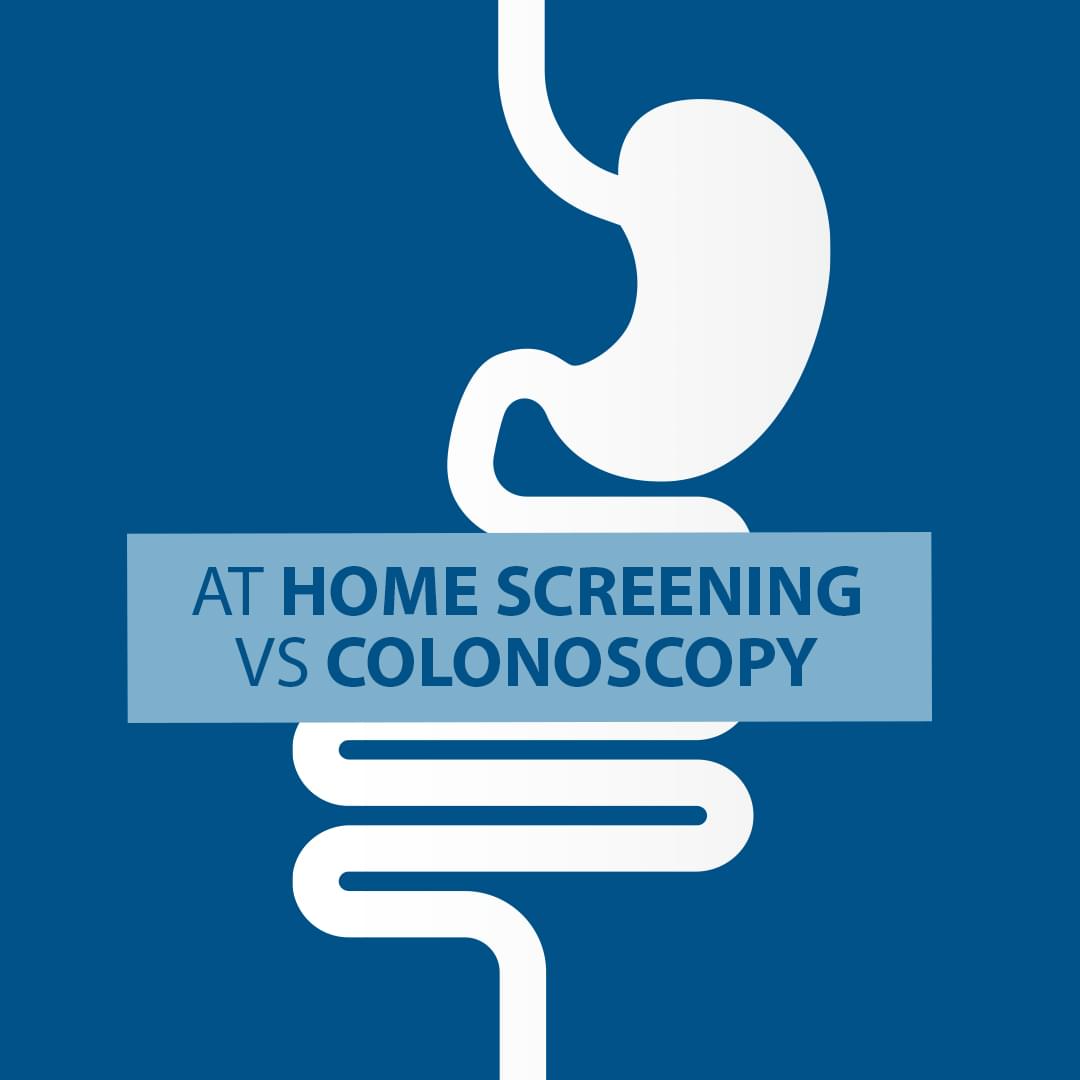It is estimated that annually 150,000 Americans will be newly diagnosed with colon cancer. Many of these cancers, and certainly many deaths, could be prevented with a colon cancer screening.
The best way to screen for colorectal cancer is a colonoscopy, the College reports. Most people should get their first colonoscopy at age 45 and repeat it every 10 years if the test is normal. Other screenings are needed more frequently. Learn more by reading our Colonoscopy FAQs.
People with a family history of colorectal cancer should get screened at age 40, or when they are 10 years younger than the age at which a family member was diagnosed.
Adena’s Colon and Rectal Cancer Tumor Board
The tumor board is a forum to discuss planning and treatment for patients with colon and rectal cancer. Time is set aside each week for physicians from multiple specialties to review your case. Some of the physicians are directly involved in your care and others are there to give input and help with difficult issues. The discussion and planning at tumor board is an essential part of providing you with the best and most-up-to date treatment for your cancer diagnosis.
To learn more about the Adena Cancer Center or colorectal cancer please call 740-542-3030.
Symptoms
Colon cancer can be present for several years before symptoms develop, making early detection difficult without appropriate screening and diagnostic studies. Symptoms vary by tumor location and often are not present at all. Signs and symptoms of colon and rectal cancer include:
- A change in your bowel habits, including diarrhea, constipation, narrowed stool or a feeling that your bowels aren’t emptying completely
- Blood in your stool, on the tissue, or dripping into the bowl
- Abdominal pain, cramping or bloating
- Weakness, shortness of breath or fatigue
- Unexplained weight loss
It is important that you talk to your physician about your risk factors and screening options.
Genetics
If a close family member has had colorectal cancer, your risk of developing the disease increases as much as four-fold
To learn more about the Adena Cancer Care Center please call 740-542-3030.
If a first-degree family member is diagnosed with colorectal cancer, you are two to three times as likely to develop it than someone without that family link.
People with more than one close family member with colon cancer face a bigger risk — they are nearly four times as likely to develop colon cancer than others. And the younger the age of your relative at diagnosis, the higher your risk, according to the National Cancer Institute.
Ethnicity also plays a role. African Americans have the highest rates of colorectal cancer among all racial groups in the U.S.
All adults 45 and older should get regular colorectal cancer screenings, but adults with a family history may need earlier or more frequent screenings and should talk with their doctor. Colonoscopy is considered the best screening, especially for people with known risk factors including a family history.
Are you a candidate for genetic testing?
If you are concerned about your family history, genetic testing is an option. More than a dozen genes are associated with colorectal cancer. These genes fall into three classes — tumor suppressor genes, oncogenes and DNA repair genes.
When these genes mutate, they can place a person at high risk for developing colorectal cancer. When a parent carries this genetic mutation, his or her child will have a 50 percent chance of inheriting the predisposition, NCI reports.
Adena offers testing to determine if you have a gene mutation that could heighten your colon cancer risk. If you answer yes to any of the following questions, you may wish to consider testing.
- Have one or more of your first-degree relatives been diagnosed with colorectal cancer?
- Was a relative diagnosed before age 45?
- Has a family member developed colorectal adenoma (a benign tumor or polyp)?
Considering your options
Genetic testing is fast and painless. The specialists at Adena will take a blood sample or use a cotton swab to collect cells from the inside of your mouth.
Then, based on the results, you may choose to take precautions such as scheduling regular exams or trying chemoprevention, the use of drugs or supplements to curb risk.
Prevention
At Adena, we are committed to decreasing colon and rectal cancers by providing education and increasing awareness.
#1 Early Detection
The number one reason for having a colonoscopy is to prevent colon cancer. Colon cancer is a preventable form of cancer and can be cured if detected in time. With early detection the 5 year survival rate is 90% and greater.It is estimated that approximately 140,000 new cases of colorectal cancer are diagnosed annually. Learn more by reading our Colonoscopy FAQs.
What are Polyps?
Polyps are growths that form on the inside lining of the colon. While colon polyps start out as benign tumors, certain types of polyps (called adenomas or adenomatous polyps) may turn into cancer. The risk of cancer is greater as the polyp gets larger.Early detection and removal of colon polyps will greatly reduce your chances of colon cancer. Polyps are easily removed by using a forceps tool that will pull the polyp off the colon wall. Polyp removal can also be done by using a forceps with a heat source to prevent further bleeding from the site. Larger polyps are removed using a diagnostic tool called a snare that is placed over the polyp and uses heat to remove the polyp, leaving a clean base on the colon wall.
#2 Maintaining Good Health
Regular colonoscopies provide a real time image of your gastrointestinal (GI) tract.
A visual inspection of the colon may lead to the need for a diet change. For example, a diet consisting of low fiber, high processed foods can lead to diverticulosis.
Diverticulosis is a condition marked by small sacs or pouches in the walls of the colon. These sacs can become inflamed and cause bleeding or blockage. Diverticulosis is a lifelong disease that cannot be healed or reversed. To prevent inflammation, an individual will need to avoid seeds, nuts, popcorn and other hard to digest foods.
Why is Fiber an important part of an individual’s diet?
Fiber, along with adequate fluid intake, moves quickly and relatively easily through your digestive tract and helps it function properly. Some types of fiber bind with fats and toxins helping to cleanse your entire colon. Think of fiber as nature’s way of cleaning the GI tract.
#3 Useful in Discovering Other Colon Disease
If you have noticed any rectal bleeding or blood in your stool, a colonoscopy can identify the location of the bleeding and treat it through a series of methods such as medications or cauterization (applying heat) to prevent further bleeding or breakdown of the tissue.
Symptoms such as diarrhea, abdominal pain or constipation can be signs of other colon related diseases, such as Ulcerative Colitis, Inflammatory Bowel Disease and Crohn’s Disease.
Proper diagnosis of these diseases can greatly improve colon health.
#4 Necessary if experiencing other symptoms
Symptoms such as rectal bleeding, diarrhea, constipation, abdominal pain and changes in bowel habits should be checked out immediately by your physician.
With a colonoscopy procedure, many of these symptoms can be identified from visual inspection. Different methods of treatment are used when abnormal findings within the colon are present. For example, rectal bleeding is usually caused by hemorrhoids, which are dilated blood vessels or veins in the anal or rectal area.
Hemorrhoids can be treated with medications or by hemorrhoid banding. Banding is a procedure where tiny rubber bands are secured onto the hemorrhoid via suction where they will stay in place until the hemorrhoid falls off.
Treatment for diarrhea and constipation includes medications, such as stool softeners and antibiotics, and a change in your diet. Your physician may also take several biopsy samples (removal of small pieces of tissue) from your colon.
This will enable the physician to identify any bacterial changes or specific diseases within the colon.
#5 Your Age
At age 45, every person should be screened for colon cancer. Between 35-40 percent of individuals age 50 and older will have colon polyps. Some benign (noncancerous) polyps will progress to cancer if left untreated.
It is estimated that colon polyps may take ten years or more to develop into cancer.
Age 45 was determined as the starting age for screenings because that is the age that the risk for colon cancer begins to increase substantially.
People with a history of colon cancer in their family should be screened at age 40 rather than 45.
#6 Family History of Colon Disease or Cancer
Often we have predisposing risk factors that are beyond our control such as heredity and genes. Those with a family history of colon cancer are at greater risk. For instance, someone who had a parent with colon cancer is at roughly double the average risk.
This risk increases as more family members are affected. Hereditary familial polyposis is an inherited condition in which the colon is studded with hundreds of polyps that develop at an early age. The only known preventative treatment is surgical removal of the polyps in its early stages.
Another inherited disorder is known as Lynch Syndrome. This disorder is more common than hereditary familial polyposis. Individuals diagnosed with Lynch Syndrome have a higher risk for cancerous adenomas which develop earlier in life starting in their 20’s. Cancer of the colon is a serious but readily detected malignancy. Early detection increases the chance for survival. Today more advanced technology and research provides the capabilities of preventing and curing this cancer.
The most important step involves action by the patient to schedule a colon screening and by following-up with a physician.
Screenings
Colon cancer is the third most common cancer in Americans, yet it is one of the most preventable cancers. Regular screenings can detect polyps in the colon, which can be removed before turning cancerous. All adults should begin screenings at age 45 or earlier if they are at higher risk. Risk factors include:
- Family history
- History of polyps or inflammatory bowel disease
- African American descent
Here is a look at the various screenings available. To learn more about early detection of colorectal cancer and these screenings, go online to the American Cancer Society or download the printable ACS guide.
Colonoscopy: A camera attached to a thin, flexible tube is guided through the large intestine. Physicians look for polyps and remove them before they turn into cancer. Every 10 years. Most effective way of detecting polyps, which can be removed at time of test. Requires vigorous bowel cleansing procedure at home for 24 hours; requires sedation.
Stool test: A stool sample is analyzed for presence of blood. Performed annually. Simple, cost-effective and can be done at home. If blood is detected, colonoscopy is still required. Least effective way of detecting colon cancer.
Flexible sigmoidoscopy: Similar to colonoscopy but only inspects the lower parts of the colon. Every 5 years. Takes only 5 minutes and does not require bowel preparation or sedation. Only examines lower 1/3 of colon and will not detect cancer in the upper 2/3 of colon.
Barium enema with air contrast: Enema of chalky substance is given, then air is blown into colon and X-ray performed. Every 5 years.
Virtual colonoscopy: A special CT scan is used to image the colon. Every 5 years. More comfortable than colonoscopy, effective at detecting medium and large polyps but not effective at detecting small or flat polyps. Requires colonoscopy if polyps detected. Requires same bowel prep as colonoscopy. Not covered by Medicare or most insurers.
Diagnosis
Colon and rectal cancers usually begin as polyps, noncancerous growths that can form on the colon wall. If a polyp is not removed or treated, it can become cancerous over time. In people with a rare genetic predisposition, these cancers may develop more quickly.
If colon cancer is suspected, doctors will first confirm cancer by performing a colonoscopy to retrieve a sample of the tumor that can be biopsied by a pathologist. When cancer is identified, doctors must determine the location and stage in order to recommend the best possible treatment. They will use additional tests to help determine this, including CT scans of the chest, abdomen, and pelvis. Blood work is also checked for tumor markers.
Cancer is considered to be early or advanced depending on the size of the tumor, the degree to which nearby lymph nodes are affected, and whether or not it has spread to other parts of the body. The sooner colon and rectal cancers are detected, the more likely they can be successfully treated.
Colon Cancer
- Most colon cancers stem from a kind of tumor called adenocarcinoma. Cancerous cells form inside the tissue of the colon.
- Typically found during colonoscopy screenings, or when symptoms develop, such as weight loss, a change in bowel habits or blood in the stool.
- Diagnosed through a colonoscopy, biopsy, blood test or imaging tests such as a CT scan or MRI.
- Most colon cancers are treated with surgery. The portion of the colon with the tumor is removed, and the remaining bowel ends are reconnected.
- After surgery, a pathologist will study the tumor and lymph nodes to determine if chemotherapy is needed to kill lingering cancer cells.
Rectal Cancers
- Most rectal cancers stem from a kind of tumor called adenocarcinoma. These are cancerous cells form inside the tissue of the rectum.
- Typically found during colonoscopy screenings, or when symptoms like weight loss, a change in bowel habits or blood in the stool develop. Diagnosed through a colonoscopy, biopsy, blood test or imaging tests such as a CT scan or MRI. Radiation therapy and chemotherapy are first used to kill as many cancer cells as possible.
- Then surgeons remove part of the rectum and re-attach the bowel, or the entire rectum and perform a colostomy. This depends on the location of the tumor.
Services and Treatments
Providers
Our Providers
View All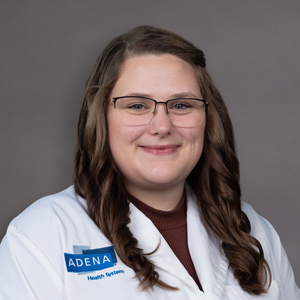
Rhoads, Danelle FNP

Wellman, Angela CNP

Singer, Sara MD
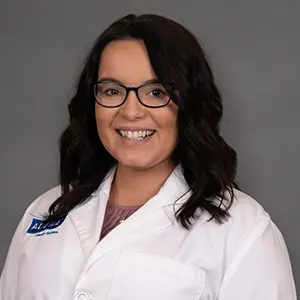
Mitchell, Carissa CNP
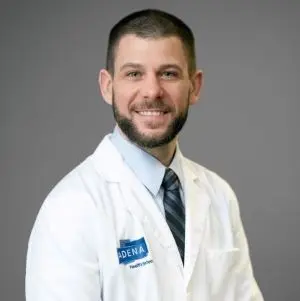
Thompson, Greg MD

Patel, Sandip MD

Rose, Jeffrey MD
sq300.webp?sfvrsn=c3be4d5a_4)
Wilson, William MD
Locations
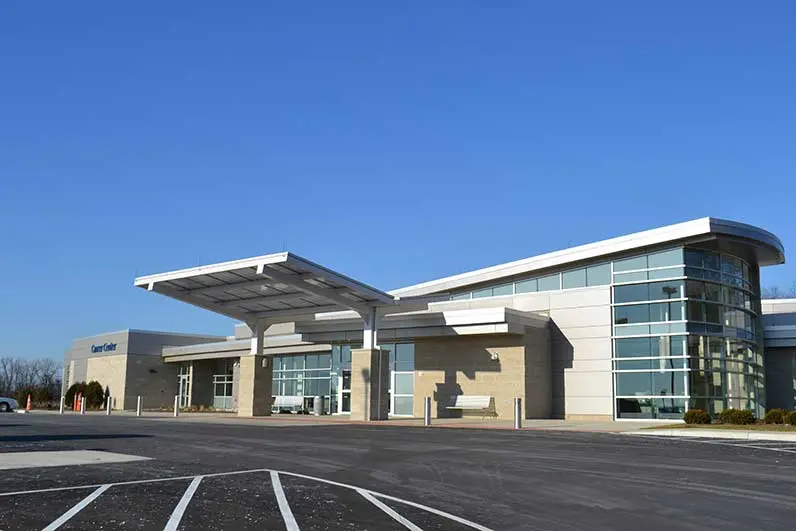
4435 State Route 159
Chillicothe, OH 45601
Get directions
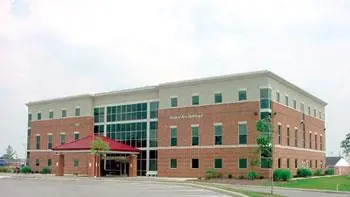
1510 Columbus Avenue
Washington Court House, OH 43160
Get directions
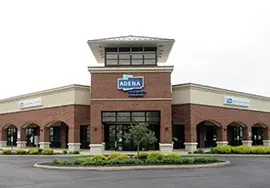
Adena Health Center - Circleville
140 Morris Road
Circleville, OH 43113
Get directions
News and Resources
Colorectal Cancer
Colon cancer is the second leading cause of cancer deaths in Americans, yet more than 40 percent of Americans over the age of 45 are not getting the recommended cancer screenings, according to a new guidance statement by the American College of Physicians.


